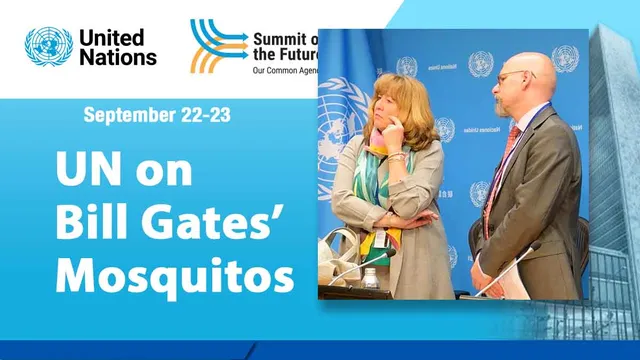
UN Officials Address Concerns on Bill Gates' Mosquito Project
2024-09-24 00:30- Two senior UN officials addressed concerns about the organization's involvement in genetic engineering.
- They clarified that the UN's role is limited to establishing biosafety oversight and not direct involvement in projects.
- The topic will be discussed at the upcoming UN COP for biodiversity in Colombia.
Express your sentiment!
Insights
During a recent inquiry regarding the United Nations' role in genetic engineering, two senior officials addressed concerns about the UN's involvement in Bill Gates' mosquito project. Astrid Schomaker, the Executive Secretary of the Convention on Biological Diversity, and David Ainsworth, the UN Environment Programme Information Officer, clarified that the UN is not directly involved in the project. Their primary role has been to establish biosafety oversight for such initiatives. The officials acknowledged the public's apprehensions surrounding genetic engineering and its implications for biodiversity. They emphasized that these concerns would be a significant topic of discussion at the upcoming UN Conference of the Parties (COP) for biodiversity, scheduled to take place in Colombia. This conference aims to address various issues related to biodiversity and the potential risks associated with genetic modifications. The dialogue surrounding genetic engineering, particularly in relation to mosquitoes, has gained traction due to the potential benefits and risks involved. Proponents argue that genetically engineered mosquitoes could help control diseases like malaria and dengue fever, while critics raise alarms about unforeseen ecological consequences. As the UN prepares for the COP, the discussions will likely focus on balancing innovation in genetic engineering with the need for environmental protection. The outcome of these discussions may influence future policies and regulations regarding genetic engineering and its applications in public health and environmental management.
Contexts
In September 2024, the Bill and Melinda Gates Foundation reported that over 400 million children globally suffer from malnutrition, highlighting a significant public health crisis. Bill Gates and musician Jon Batiste visited Nigeria to support local initiatives aimed at combating hunger, emphasizing the critical need for improved child nutrition and the role of the arts in fostering empathy and collective action. Gates has also been vocal about wealth taxation, advocating for a progressive tax system that would require billionaires to contribute more to society. This aligns with his commitment to donate most of his wealth to his foundation, which focuses on global health and development. The backdrop of these efforts occurs amid ongoing global challenges, including escalating conflicts in the Middle East, Ukraine, and Sudan, which complicate humanitarian efforts. The UN Secretary-General has called for member nations to unite on pressing issues like climate change and artificial intelligence, indicating a need for collaborative solutions to address these crises. Additionally, Gates has warned of the potential for future pandemics within the next 30 years, stressing the importance of preparedness in light of emerging zoonotic diseases. This context underscores the urgency of addressing both immediate health crises and long-term global challenges.